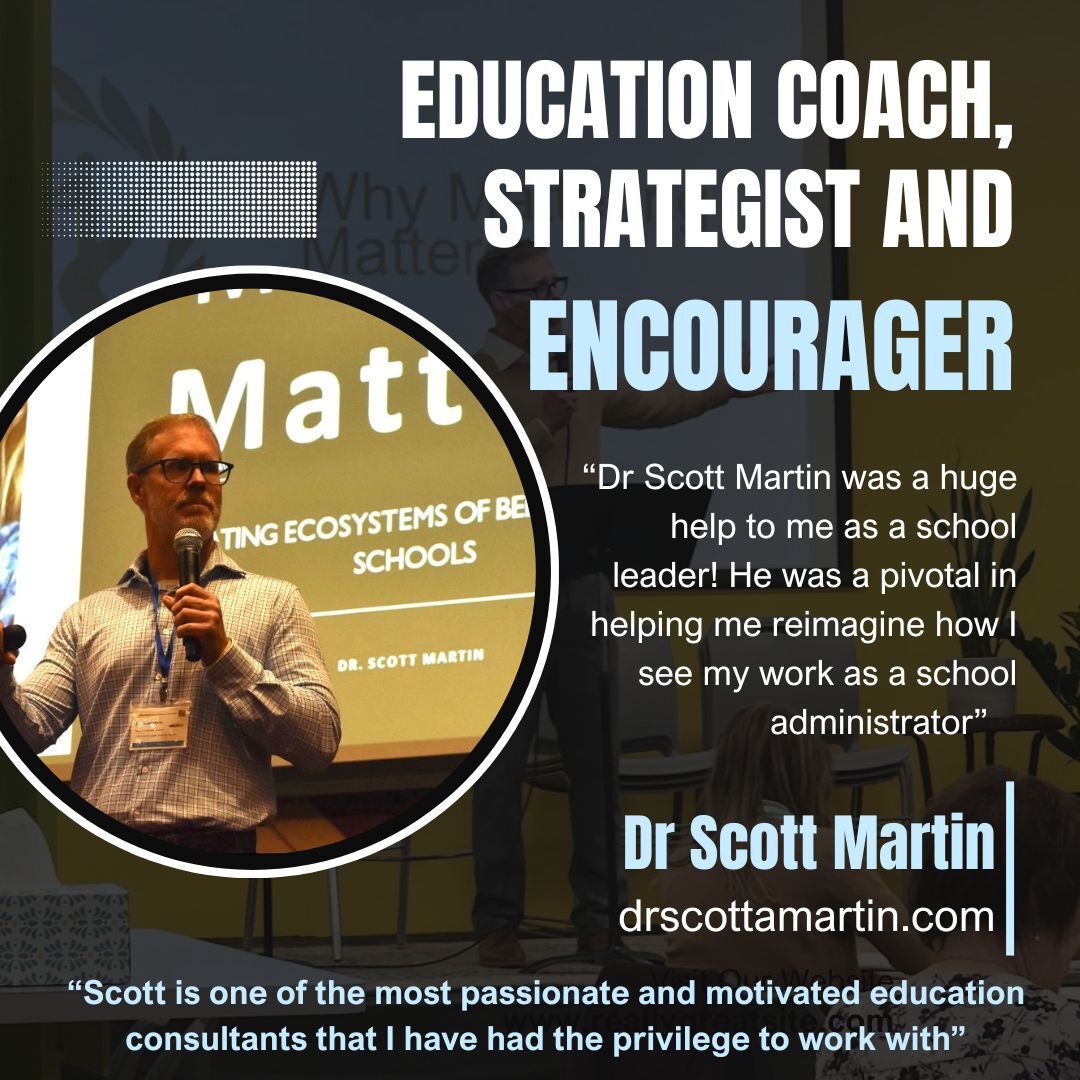I recently encountered a school district announcement calling for community members to join a task force aimed at increasing "student achievement."
While I genuinely commend any district willing to engage its community in addressing the challenges facing schools and students, I find myself deeply troubled by this familiar refrain.
What concerns me is not the district's intentions, but rather the unexamined assumptions embedded in that seemingly innocuous phrase.
When I read "student achievement," I hear an implicit translation:
"Come help us figure out how to boost test scores, which will elevate our school rankings, which will secure continued federal funding for our district."
This may sound cynical, but after three decades in education, I’ve seen firsthand how this language, this mission, this goal impacts kids…and it’s not always good
There is much to unpack here, and I ask for your patience as we examine three critical problems with our current “achievement” paradigm
The Myth of Achievement as Salvation
The focus on "student achievement" appears laudable on its surface.
Who could argue against students achieving?
But this goal is inextricably tied to a larger cultural mythology that desperately needs interrogation: the belief that if we can just shepherd students through high school and into college, everything will magically work out.
The implicit promise is that if we give students enough “school” they will somehow transcend the numbness, alienation, isolation, loneliness, shame, regret, despair, and depression that plague our contemporary moment.
But thirty years of working with young people and the alarming statistics related to adolescent self harm has taught me:
This myth is as hollow as it is pervasive.
I have sat across from brilliant students—straight-A GPAs, National Merit Scholars, full-ride scholarships to Ivy League institutions—who battled crippling depression.
I have watched gifted young people cut themselves in desperate attempts to feel something, anything.
I have counseled students who numbed their pain with drugs and alcohol, who attempted to end their lives in various tragic ways (some, horribly, who succeeded)
I have listened to valedictorians lament that, even after achieving everything, they still felt unseen, unvalued, unknown
These were not students who lacked "achievement" by any conventional metric.
They had succeeded spectacularly by every measure our system values.
What they lacked was something our achievement obsession cannot deliver:
A sense of meaning, purpose, belonging, and wholeness.
These aren't anomalies or exceptions. They're warning signs that we're navigating by a broken compass.
When "student achievement" becomes our North Star, we risk inflicting profound damage even when students "succeed" in that narrative
We create a generation of accomplished, credentialed individuals who have never been asked to grapple with questions of character, virtue, community responsibility, or human flourishing.
We produce students who are good at “doing school” (to borrow from Denise Pope’s great book with the same title) but who are also highly stressed out, anxious, lonely, and do not feel that they matter
The Efficacy Problem: Does Our Approach Even Work?
Even if we bracket these deeper philosophical concerns and accept "student achievement" as an unqualified good, we must ask:
Is there any evidence that our singular focus on this end actually delivers the results we claim to desire for our children, schools, and communities?
The answer, increasingly, is no.
Education researcher Tony Wagner has documented a troubling disconnect between what we measure as "high student achievement" or "college readiness" and what students actually need to thrive in college, careers, and life.
As Wagner observes, our well-intentioned national K-12 goals may be "jeopardizing the futures of millions of kids."
Consider what our achievement metrics actually assess: Can students perform well on standardized tests under timed conditions? Can they retain and regurgitate information in formats that mirror those assessments?
These are not insignificant skills, but they represent a fraction of what humans need to flourish.
**And this does not even scratch the surface of what AI is doing to disrupt everything we think we know about knowledge, work, and humanity itself
The “drill and kill” Memorization Era of education is dying rather quickly and the need to prepare students for the Innovation Era is more pressing than ever before
The old world of desks and rows, quizzes and worksheets, tests and grades does little to prepare students for their own humanity and certainly little to prepare them for life in the real world of 22nd century technology
A Better Frame: Achievement as Byproduct, Not End
Ancient Greek philosophers understood something we've forgotten in our metrics-obsessed age: happiness cannot be achieved by pursuing happiness directly.
Happiness, they taught, arrives as a byproduct of a life well-lived, not as a destination to be reached through optimization and accumulation.
The same principle applies to student achievement.
When we make achievement itself the target, we almost inevitably undermine the very conditions that produce genuine learning, growth, and yes, achievement. The pursuit becomes self-defeating, if not outright destructive.
What if we inverted the equation?
What if, instead of pursuing achievement and hoping for student wellbeing as a side effect, we pursued human flourishing and allowed achievement to emerge as a natural byproduct?
Imagine schools designed around this question:
What would help students develop into fully realized human beings who possess not just knowledge but wisdom, not just skills but character, not just credentials but a sense of calling?
What would emerge if we prioritized helping students discover meaning, cultivate resilience, build authentic relationships, develop moral imagination, engage their communities, and contribute to something larger than themselves?
My belief—based in large part on what we are doing at Odyssey Leadership Academy doing that very thing with real flesh and blood students each and every day—is that we would get both high intellectual engagement AND rich moments of purpose and meaning
We've reached a moment that demands educational courage
To the school district that prompted these reflections, and to the countless others in similar positions:
I understand the pressures you face.
I know the very real constraints of federal funding tied to specific metrics. I recognize the political realities that make deviation from the achievement narrative genuinely risky.
But I also believe we've reached a moment that demands educational courage—the courage to name what isn't working, to question narratives that have calcified into unexamined truth, to imagine and pursue alternatives that honor the full humanity of our students.
Perhaps your school could begin not by strategizing how to increase achievement but by asking deeper questions:
What does flourishing look like for our students?
What do they need to develop into healthy, whole, contributing members of society?
How might we create conditions where both learning and wellbeing can thrive?
What would change if we centered love rather than metrics?
The answers might surprise us.
They might lead us to discover that meaning and achievement aren't opposites or even separate pursuits—that in grappling with the question of what students truly need, we might find both human flourishing AND educational excellence possible to attain.
I believe this is a conversation worth having
Next Steps: Let's Talk
If you're ready to reimagine what's possible in your leadership context, I'd love to explore how we can work together.
I offer:
Leadership Coaching for visionary school leaders and organizational executives
Consulting for schools and organizations seeking to reimagine their culture and structure
Speaking & Workshops on flourishing-centered leadership, innovative education, and human formation
Encouragement for all who need it
Contact me by clicking the link below:


